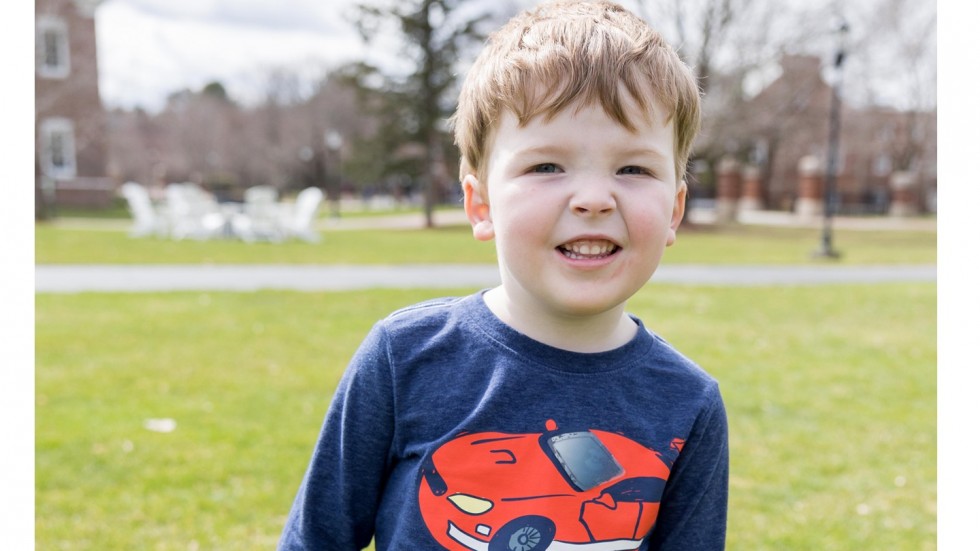Candy and the Playground
Every Friday afternoon, Zammarelli would meet with Maverick and play games as part of his speech therapy. “He was extremely polite, cooperative and hardworking. He would always get excited when I’d introduce a new game or toy,” says Zammarelli.
At school, Scott, a special education teacher, worked with Maverick on developing social skills affected by his speech delay, such as greeting people and participating during circle time. “As he would practice his articulation skills and we could understand him at an increasing rate, Maverick was able to see the fruits of his labor. This made him want to contribute more to classroom discussions and engage with his peers,” says Scott.
Within a few months of working with Zammarelli and Scott, Maverick was saying short sentences. “He sounded like a 3-year-old, singing songs and reciting the alphabet,” says Gagne. “I would never have guessed he could have gone that far in such a short period of time. Tayla and Cirissa adapted to him, and he adapted to them.”
Gagne recalls a particularly poignant moment during a family vacation that spring. “We asked the kids what they wanted to do one day. For the first time, Maverick was able to share an opinion,” Gagne recalls. “He wanted to get candy and go to a playground. Up until that point, he hadn’t been able to articulate an opinion. It was definitely an ‘I’m not crying, you’re crying’ moment.”
Paths to Maverick
While their starting point was at Stonehill, different paths brought Zammarelli and Scott to Maverick.
As an undergraduate, Zammarelli knew she wanted to pursue a career in speech pathology, but at the time, the College didn’t have a major or minor in the area. [Stonehill introduced a speech-language minor in 2017.] So Zammarelli created her own path, majoring in interdisciplinary studies and minoring in healthcare administration. Working closely with Assistant Professor of Biology Sheila Barry, she chose classes that focused on speech-language pathology and completed two internships in the field.
“Through these internships, I gained the necessary experience and skills that gave me an edge before beginning graduate school. They also confirmed my desire to become a speech-language pathologist,” recalls Zammarelli, who cofounded the speech and language club on campus, which continues to thrive.
After graduation, Zammarelli earned a master of science degree at Sacred Heart University and then an advanced graduate certificate in pediatric dysphagia from New York Medical College.
Scott was an early childhood education major and sociology minor. With master’s degrees from Lesley University and Bridgewater State University and a license in special education, Scott has been working in the Dighton-Rehoboth Regional School District for 10 years.
She continues to call on an early lesson learned in one of her education courses at Stonehill. “The professor explained how ‘fair is not equal’ in education, meaning that different students need different levels of support in order to succeed,” she recalls. “These discussions have stuck with me throughout my career when I’ve had to advocate for my students’ needs.”

